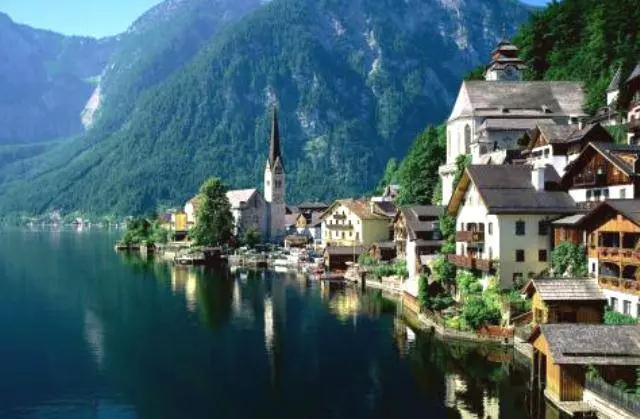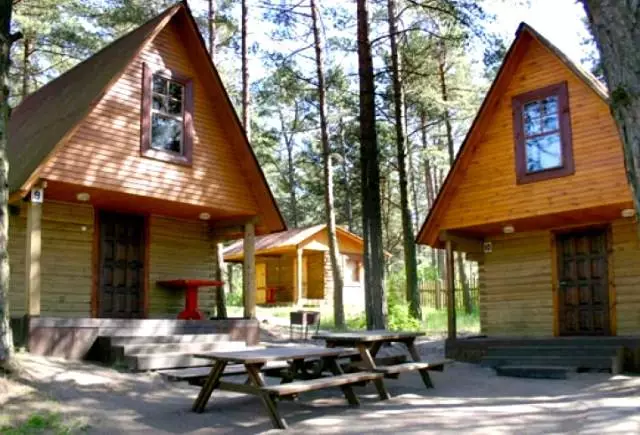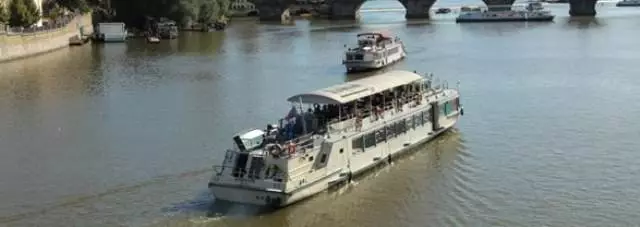Slovakia is an amazing country. Vintage castles and palaces, picturesque villages and major cities with a centuries-old history are miraculously fit on her small territory. A lot of interesting things can be found in unique Slovakia - from cognitive historical museums and majestic castles to health resorts with useful mineral sources. Tourists who come to this part of Europe are trying to visit Bratislava, Piestany and clear, but familiarizing inquisitive travelers are not limited to knowing these cities. Many are happy to spend several days in Presov, famous for their seven-year history and wonderful Tokai wine. Night interest among tourists also cause high tatras - one of the most picturesque corners of a country rich in coniferous forests and lakes.
Honestly, some resorts of Slovakia only recently began to cause massive interest among Russian-speaking tourists. And this interest is associated with inexpensive winter holidays, giving an opportunity for little money to excitely spend time on the magnificent tracks of the local ski centers. But as for me, the journey to Slovakia in the summer period is also rich in impressions and interesting pastime. For amateurs of active recreation, all conditions for planting rafting on mountain rivers or performing descents to any of the twelfts open to visit the caves are created. The lack of sea in this country successfully compensates for the presence of pictorial lakes with transparent water and suitable diving conditions.

But, as in any other country, rest in Slovak has its own nuances, the knowledge of which helps to make the trip "cloudless" and memorable.
Language
What Russian-speaking tourists will definitely fail to face while relaxing in Slovakia, so it's with a language barrier. Despite the fact that Slovak's state language is the state language of this country, many local residents understand Russian speech and relatively relate to tourists. The young and middle generation also thoroughly speaks English, especially in the tourist cities. And yet, in major settlements, information signs for tourists are issued in Slovak and English. The same phenomenon is found at large railway stations, where the scoreboard with the train schedule is duplicated at state and international (English) language.
Accommodation
With a search site for the night in Slovakia, there will be no problems. In major cities there is a large selection of hotels, hotels and hostels. Star hotel accommodation will cost travelers from 50 to 120 euros depending on the hotel level. On therapeutic and wellness resorts, tourists are invited to stay in health resorts or family-type hotels. As for the picturesque villages and resorts attracting agritourism, here travelers will not definitely find fashionable apartments, but at the same time you can stay in a clean and cozy room of one of the guest houses. By the way, guest houses here are found different levels. Some of them are not inferior to large hotels, and sometimes even provide a higher level of service. The cost of living in such a place starts from 40 euros.
The most fiscal option overnight stay in Slovakia is a common room in a hostel, where for daily accommodation will have to pay about 15 euros. You can still stay at Camping. And this option will not be so terrible as some tourists might think. Frequent guests in Slovak Camping are Germans, Austrians, Dutch and Slovaks themselves. But recently, Russian, Ukrainians and Poles began to meet in modernly equipped campsites. Such accommodation is easy to find in the vicinity of Bratislava, Poprad and High Tatras. The average cost of overnight in the campsite is about 6 euros per person.

The only place in Slovakia, where there is a lack of hotels and campgrounds - these are national parks of the country. So, planning more than one-day stay in these areas, you should first worry about finding a place for overnight.
Transport
Slovakia can be called a compact country. From one popular city to another interesting resort can be easily reached by train for 2-5 hours. Travel on railway transport in this country is held in comfortable conditions and is relatively inexpensive. A short train at the train will cost 1 euro, and a longer journey through the country on a slow or express train will cost from 5 to 17 euros.
If desired, the country can be moved by bus, but the only drawback of this transport is a higher fare. It is true, still look at the water report. This way of movement will deliver pleasure. The main thing is that the city travelers interest are related to the main water artery of the country - the Danube River. A walk on the ferry or motor ship will turn out to tourists at least 6 euros.

As for the movement of Slovakia by car, then this is also a good option. Tourists can rent a car over 19 years old in the presence of an international driver's license. In Slovakia, there are pan-European rules of the road, for the violation of which large penalties are provided (from 200 to 1000 euros). Do not forget about the use of a seat belt, which is mandatory for all in the car.
Communication
Call home from Slovakia using a phone-machine. Most often they are found on the central streets of the resorts and work on cards that are sold in newsstands. Surely the phone can be found in any post office. You can also purchase a card. You can contact your relatives with the Internet. Free access to Wi-Fi is available almost all hotels, guest houses and hostels.
Safety
Most often, rest in Slovakia is calm and quite safe when compliance with elementary caution measures: vigilance in crowded places, avoiding single walks in the dark. In the event of force majeure situations, contact the police that patrol the streets of Slovak resorts during the day and night.
Free medical services in Slovakia are not provided with Russian tourists. So before the trip you should take care of insurance just in case.
